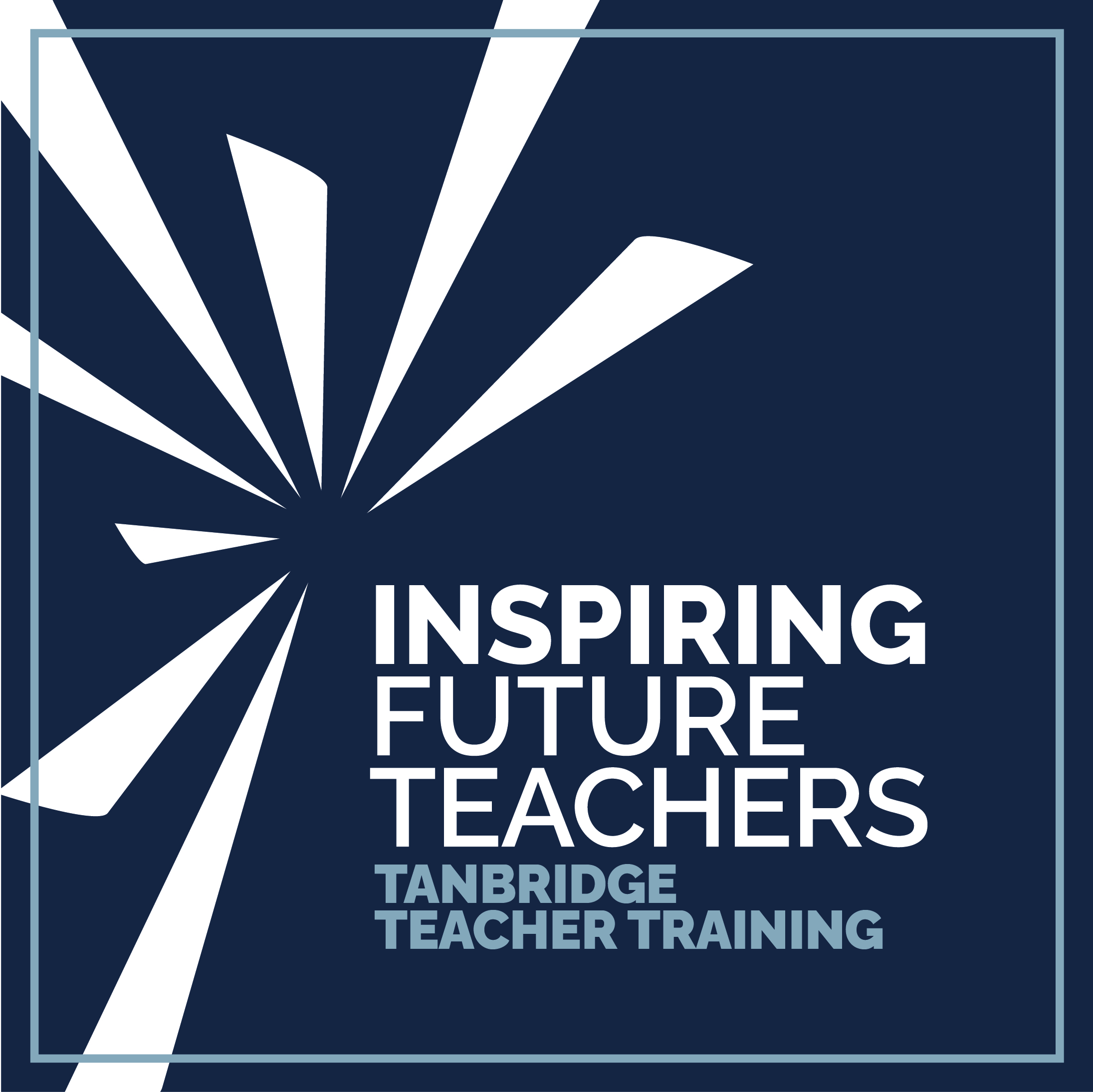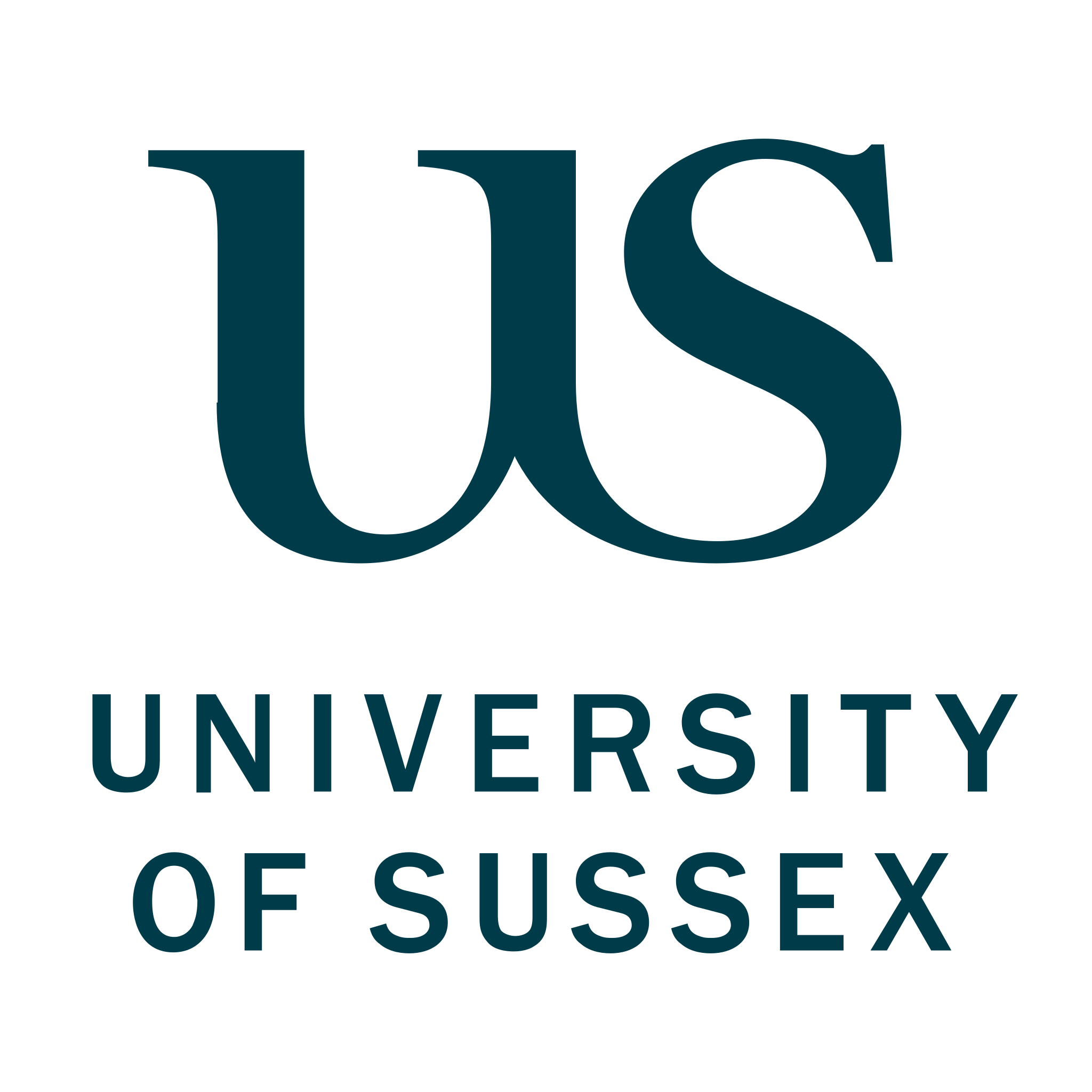We teach teachers...
We are delighted to welcome you to our Initial Teacher Training area which we hope provides you with the information you need to start your journey into teaching. If you’ve got this far, this is hopefully your first step to your career as a teacher which we believe is one of the most rewarding careers imaginable. The opportunity to share your passion, expertise and skills with students who will stretch you every day is like no other job - no two days are ever the same.
We work with Inspiring Future Teachers SCITT and the two South Coast Universities of Brighton and Sussex, offering a high-quality experience for our trainee teachers.
Useful websites:
 |  |  |
| Inspiring Future Teachers | University of Sussex | University of Brighton |
Hear from our Trainee Teachers
Setting the scene
In order to teach in a UK state-maintained school*, you need Qualified Teacher Status (QTS). You gain QTS by completing Initial Teacher Training (ITT) at a university and/or school in the UK, generally over the course of an academic year. The award of QTS indicates that you have met the standards stipulated for trainee teachers by the Department of Education.
A PGCE (Postgraduate Certificate of Education) is often part of this training year, and this is the case for all of our providers, but you don’t actually need a PGCE to teach, hence you will see that some courses offered nationally are QTS-only. The PGCE is an academic qualification offered by a university with more in-depth analysis of the theory of teaching and learning through lectures, tutorials and assignments. The qualification is recognised around the world and may qualify you to work as a teacher in many other countries.
* You don’t need QTS to teach in an academy or independent school, both of which are outside Local Authority (e.g. the county council) control.
Requirements
To be eligible for postgraduate teacher training, you need:
- An existing good degree, or to be finishing one in the summer (June, July) before your training starts in September. If you are completing an OU degree, please check when it will be awarded as generally this is not until October-November which may affect the timing of your application.
- English & Maths GCSE
- Science GCSE if you are applying for Primary
- If you do not have these before you apply, it is possible to complete an equivalency test after your application has been submitted and before you start your training year. This will be made a condition of any offer made to you after interview.
The DfE finances some subjects through bursaries and this varies from year to year. Up to date information is best obtained from the Get into Teaching website HERE.
There are a variety of reasons as to why you may be asked to compete an SKE:
- a different but related degree to the subject you want to teach e.g. Engineering for Mathematics or Physics or Geology for Geography
- an A level but not a degree in the subject
- an unrelated degree but relevant professional experience
- a languages degree but need to improve your knowledge of a language you’ll teach
- not used your subject knowledge for a while if you are a career changer
Subject Knowledge Enhancement (SKE) courses start after you have been made an official offer. Courses run for between 8 weeks and 6 months and the provider will tell you what length they think is suitable for your knowledge. Completion of the correct length of SKE will be made part of your offer and this will allow you to access the course options. There are a few providers to choose from and most courses are online, enabling you to continue working at the same time. They are favourably received by trainees as a way to develop your subject knowledge and to start to think of yourself as the teacher, not the learner.
Please be aware that if you don’t apply until the summer, you may not have time to complete an SKE before your training starts in September.
Specific subject advice
| MFL | MFL applicants must present with two languages, generally French, Spanish or German. One can be at a lesser level. Italian is not widely taught in state-maintained schools |
| Science | Although you will train in a specific science, you will be asked to teach at least one other to a lesser level |
There is a wealth of information on the internet connected with teaching – blogs, lessons plans, podcasts etc – but we would also suggest that you:
- do some reading around the headlines and current issues in education and hot topics using either TES or Schools Week
- Look at the National curriculum for your subject
- Look at the exam specifications for your subject
- Look at KS3 or KS4 revision guides aimed at students – you can learn a lot.
We’re looking for those who are prepared to give to our young people and our school communities, whose love of and passion for their subject shines through, who understand that teaching brings both intense rewards and irksome frustrations but who can work through this with patience and empathy. Age is not a barrier and we welcome new graduates and career changers alike – both parties have huge amounts to contribute.
At interview, we’d like to see a broad stroke understanding of the current issues in education and how these might affect you, a basic ability on your feet in front of a class (teaching for 20 minutes) and most of all, an awareness of the challenges your training year and future career may bring. Occasionally, a trainee decides to drop out and it is an upsetting decision for all after so much hard work, so we do ask testing questions at interview to ensure you are informed and enthused.
| When do applications open and close? Applications open nationally in the October of the year previous to the start of your course. There is no closing date as such, but we would always encourage earlier applications, or at least by the end of the Spring term, for these reasons: • the Summer term is very pressured; before half term with exam build up and the exams themselves and after half term with offsite trips meaning key interview personnel may be out of school. • it is a busy interview period anyway in schools due to staff notice periods and movement. • if you are required to complete an SKE, this cannot be started until you have an official offer in the system i.e. after all interviews have taken place which could take a month or more. If you are asked to complete an SKE of more than 8 weeks, you won’t have time to do this before a September start. • some subjects/places may already be full and have closed. |
| Where can I get some general information about getting into teaching? The 'Get Into Teaching' Website has a wide range of information |
| Where do I apply? Applications have moved from UCAS to the DfE Apply System |
| What is the Millais Alliance training provider code? It is 1BK. School location codes are in brackets on our list of schools) |
| Where can I find out about the subjects that the Millais Alliance is offering? You can search on the 'Get into Teaching' website here |
| Do you offer a part-time route? It is sometimes possible to offer a part-time route, but it does depend on both the university and the school. |
| I gained my academic qualifications outside of the UK. Can I still apply? Yes. You must obtain a Statement of Comparability from UK NARIC in order to meet criteria set by the UK Government. |
| Do I need to pass the Professional Skills Test before I apply? The tests no longer exist. However, they will be replaced with a new system where you will be assured against a set of fundamental Maths and English skills by the end of your training. This is done by the University. |
| I've lost my academic certificates. Does this matter? Yes, you will need them. Applicants who are offered a place will be asked to provide the original certificates for your degree and your GCSE's, not A Levels. |
| Do I need to put my A Levels on the application? Ideally yes. It isn't compulsory, but it helps schools and universities appreciate that you may have subject knowledge at a lower level than your degree which is relevant e.g. History A Level if you did a degree in Politics and are applying to teach History. |
| My degree is lower than a 2:2. Can I still apply? Yes, we will still consider your application if you have a degree class lower than a 2:2, but you might not be eligible for a government bursary. |
| Can I gain classroom experience through the Millais Alliance? You can arrange school visits through the School Experience Programme (SEP). Please contact us directly. |






